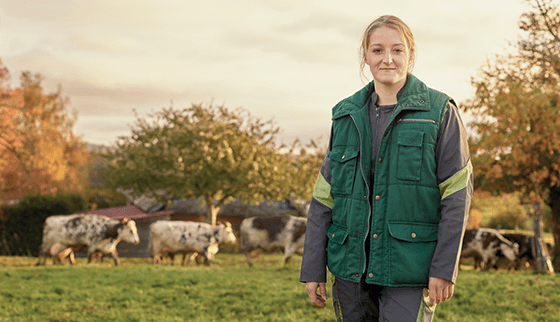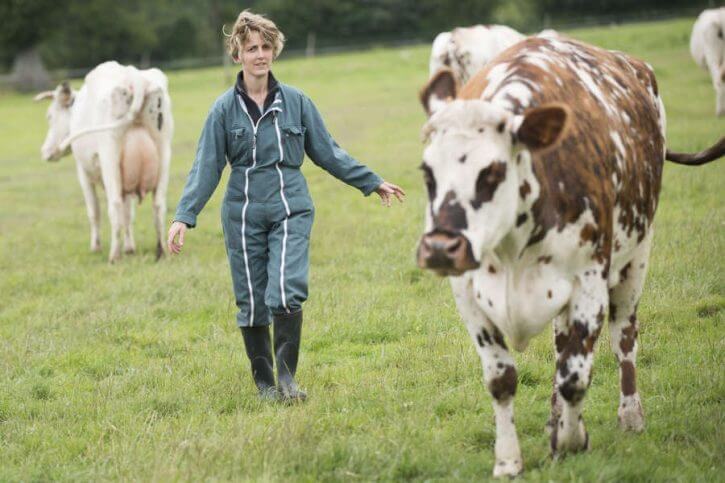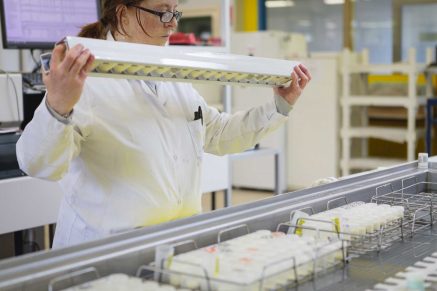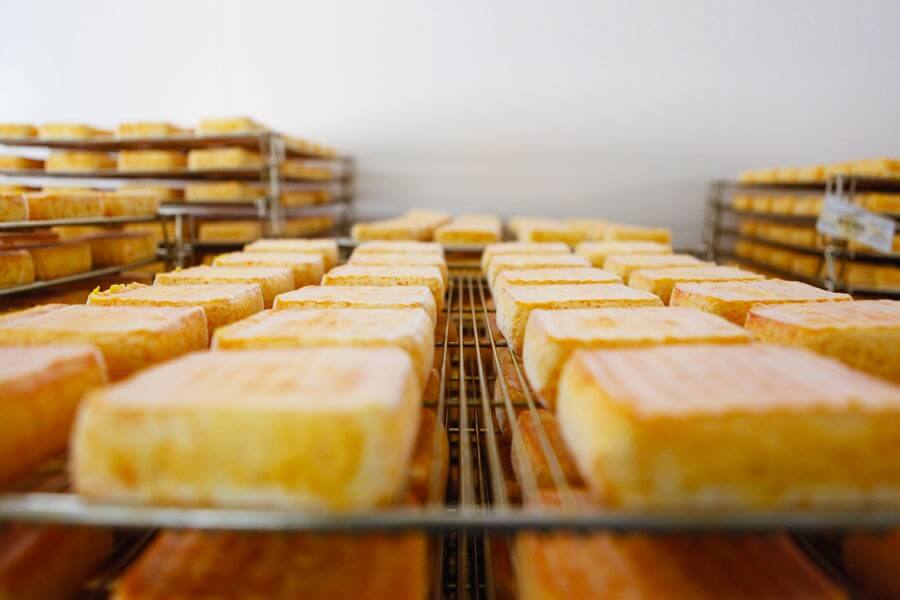ASSESSING THE WELFARE OF DAIRY HERDS
The dairy sector is committed to defining a framework of quantifiable measures to assess dairy herd welfare and establishing an evaluation method that can be rolled out to every dairy farm across France.
The evaluation criteria adopted by the French dairy sector result from a consultation process of over two years, involving a cross-industry approach with representatives from the sector’s stakeholders, including dairy farmers, co-operatives and private businesses.
To assess the welfare of dairy cattle, 16 evaluation criteria have been defined, aligning with the principles of the World Organisation for Animal Health and the five fundamental freedoms for animal welfare. These criteria are animal-focused and have technical and economic relevance to the dairy farm. They are easy to reproduce, measure and observe.
By 2025, 100% of French dairy farms will be audited as part of a continuous improvement approach.
THE LOW CARBON DAIRY FARM INITIATIVE
The Cniel, the French Livestock Institute (IDELE), the National Federation of Breeders (FCEL) and Chambers of Agriculture have pooled their expertise and resources for a cross-industry approach: the Low Carbon Dairy Farm Initiative.
The entire dairy sector is mobilised to ensure that by 2030, every dairy farm in France is engaged in the programme. To collectively reduce the impact on climate change, dairy sector stakeholders have developed and implemented a range of tools, including carbon diagnostics training targeting farmers, advice and support, sharing best practices and a national network of carbon advisors. Since 30 September 2019, the government has awarded the Low Carbon Label to the Carbon Agri method. This allows farmers to promote the reduction of CO2 in tonnes, and through carbon offset schemes, sell carbon offset credits to other businesses wishing to minimise their emissions.
COMMITTED DAIRIES
Tout comme les fermes, les laiteries cherchent à optimiser leur gestion des ressources énergétiques. L’identification et le développement de nouvelles pratiques ont permis de réduire leur facture au cours des dernières années. De nombreux industriels ont installé des chaudières de moindre puissance. lis ont innové dans des sources d’énergie renouvelable (chaudières à bois, biomasse … ). 8 % d’économies de fuel et de gaz ont été réalisées depuis 2012. Les laiteries continueront de réduire leurs émissions avec des emballages moins impactants, des réductions de consommation d’énergie et transmettront leurs résultats d’émission de carbone à l’association de transformation laitière.
Concernant l’eau, le programme AOUAREL- réalisé par Actalia pour le Cniel a audité une soixantaine de sites industriels laitiers afin de recenser les solutions écoresponsables pour gérer l’eau de manière optimale. L’objectif est que d’ici 2025, 100 % des entreprises laitières mettent en place les bonnes pratiques identifiées à leur échelle.











